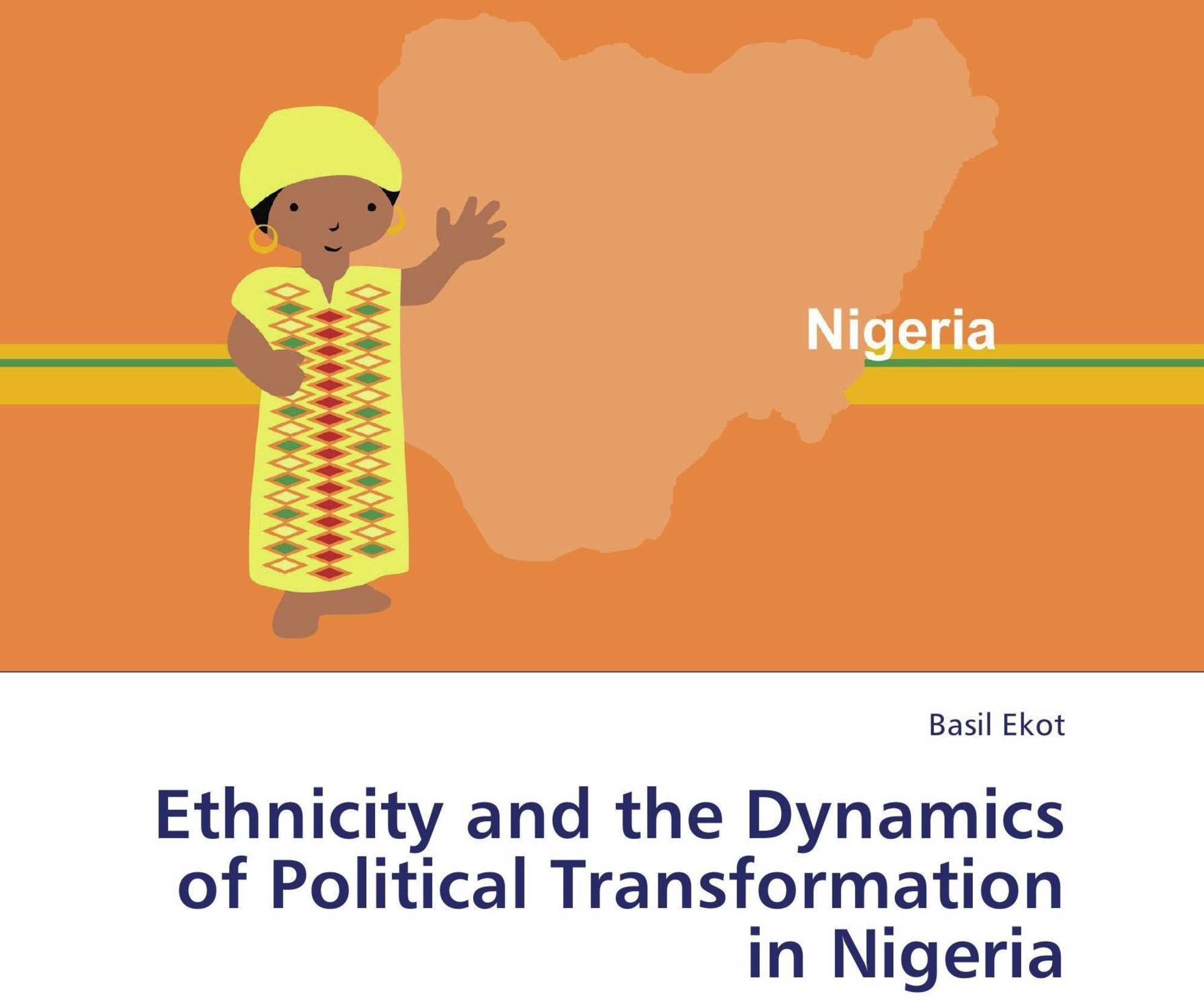By Adagbo ONOJA
There is a sense in which this book is a statement in itself. Reading through it, one is compelled to conclude that those who think that everything worth writing about ethnicity in Nigeria have been written by the Okwudiba Nnolis, Eghosa Osaghaes, Jibrin Ibrahims, Okechukwu Ibeanus, Toure K. Toure and such other names would have to think again. The question of how ethnicity as a variable has played out might not have been dealt with as extensively and intensely as in Prof Basil Ekot’s book under review here.

A/Prof Basil Ekot
A snapshot of the numerous domains the author has networked from the conceptual lamp of ethnicity straddle conceptual wrestling with the subject; ethnicity in the colonial setting and in the transition to independence; the era of military rule; the rise of mistrust and inequality in the polity; ‘federalism and its failure’ and the religious dimension of ethnicity. Each of these is a chapter, with the first two being part of the theoretical packaging of the book while the last five constitutes the second segment of the book under the sub-section: Failing Nigeria: Ethnicity and Explanation in Nigerian Political Discourse. In the third and, arguably, the more controversial segment of the book which goes by the sub-sectional title ‘Recreating Nigeria: Restoring Trust in Political Institutions, the reader finds three more chapters. One takes evidence from across Africa on handling difference, the second from the traditional authority system and the last returns to Nigeria in terms of overcoming ethnicity.
This is a rather broad, structural narrative of the book. What the average reader gets from swimming through the book is a much richer experience and sense of the slippery politics of ethnicity. Its additional attractions are the angle of entry by way of a broad sweep of the ethnic field of play before and since independence; the relative currency of the text, (still within the first 10 years, having been published 2011) and the locational advantage of the scholarship, (originally written as a doctoral thesis at the University of New South Wales, (UNSW), Australia’s fourth toughest university by its rarely shifting position in most rankings).

The all-time classic of ethnicity in Nigeria!
Most readers are likely to spend more time on page 9 of the book. Echoing previous writers, Prof Ekot asserts on this page the notion that building a nation from a multiplicity of ethnic groups has been the trouble with Nigeria. The basic question, he writes, is whether Nigerians can transfer tribal loyalties to national loyalties and if yes, how might that be achieved.
A sustainable argument could be that it is actually at the concluding chapter that the author came face to face with the questions. Here, he literarily securitises ethnicity by the status of peril he confers on the concept as far as Nigeria’s existence as a single state is concerned. But, in a reflective dash, he quashes any easy conclusion of Nigeria’s disintegration. It is here that the controversy could begin, over his three reasons for saying so. One is the ‘geological contingency’ argument by which he meant that without oil – the life blood of the nation – choosing none of the majority ethnic groups to sprout serves as an incentive to them to remain in the Nigerian State so as guarantee their hegemonic access to the benefits of oil. The second analogy he advances is the fear of war as a factor in the Nigerian psyche. “The death of over a million people in the civil war produced by Nigeria’s one previous attempt at nationalist succession is not a memory which has been lost on Nigerian people – and most especially not on its many ‘minority’ nationalist groupings who fear what the military cost of taking a ‘Nigeria – maintaining’ majority coalition would involve, (and especially if that coalition were to include the north with its demographic domination of the Nigerian military)”(p. 197). His last is what he calls ‘hidden realities’ as a factor in Nigeria’s continuing oneness – inter-cultural marriages, for instance. In his analysis, these hidden realities overwrite the antagonism and ethnic enemy images in the media.
Both admirers and critics of such an ensemble of categorical claims are bound to want to read this book. Doing so and critically responding to the author would enrich the conversation around ethnicity in present day Nigeria. Ethnicity would ever remain a slippery subject matter. Its meaning can never be permanently fixed but remain fluid. As such, there can never be too much of the conversation around it as a guarantee against the devastating use to which smart guys can deploy it. On that score that it can never have a fixed meaning, Prof Ekot may go scot free with some of his analyses. But it is doubtful if he can escape the jury for the very tiny fonts used for the book. Reprinting a book published abroad could be very costly but the present font might be the reason for insisting on a quicker second edition.
Onoja, an editorial associate with Intervention, teaches Political Science at Veritas University, Abuja where the author is an Associate Professor of Political Science




























